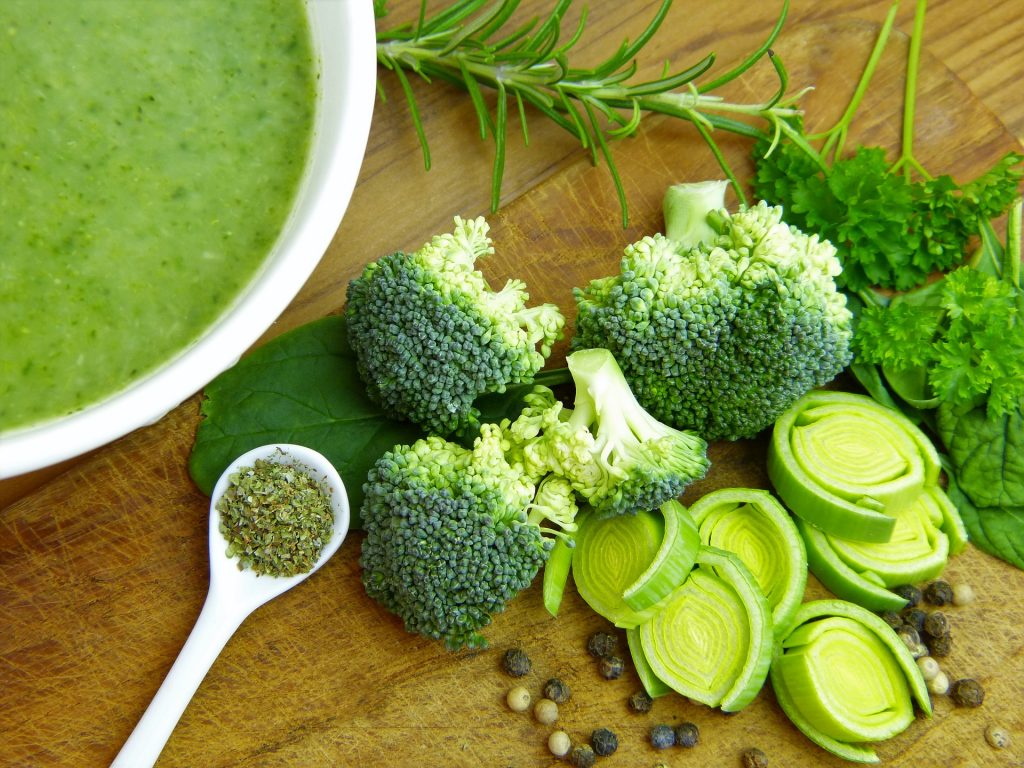November is an action-packed month with many focal points within Healthcare namely – DIABETES, ANTIBIOTIC AWARENESS AND “MOVEMBER” – Campaign focusing on Male Cancers & mental health. So stay tuned for our weekly articles.
During week one we’ll touch base on the different types of Diabetes and some myth busters & natural ways to manage the disease process. Week 2 will focus on Insulin Resistance the pre-cursor to type 2 Diabetes and my personal favourite on how to manage lifestyle and supplementation.
Diabetes Types
Diabetes mellitus, commonly known as diabetes, is a metabolic disease that causes high blood sugar. The hormone insulin moves sugar from the blood into your cells to be stored or used for energy. With diabetes, your body either doesn’t make enough insulin or can’t effectively use the insulin it does make. Ideally, there should be a balance between blood sugar and insulin in the body.

- Type 1 diabetes is an autoimmune disease. The immune system attacks and destroys cells in the pancreas, where insulin is made. It’s unclear what causes this attack. About 10% of people with diabetes have this type. This type of diabetes is chronic and long term.
- Type 2 diabetes occurs when your body becomes resistant to insulin, and sugar builds up in your blood.
- Prediabetes occurs when your blood sugar is higher than normal, but it’s not high enough for a diagnosis of type 2 diabetes.
- Gestational diabetes is high blood sugar during pregnancy. Insulin-blocking hormones produced by the placenta cause this type of diabetes.
Diabetes is a complicated disease. If you have diabetes or know anyone who has it, you may have questions about the disease.
There are many popular myths about diabetes and its management. Here are some facts you should know about diabetes.
Diabetes Myths
MYTH: No one in my family has diabetes, so I won’t get the disease.
FACT: It’s true that having a parent or sibling with diabetes increases your risk of getting diabetes. In fact, family history is a risk factor for both type 1 & type 2 diabetes. However, many people with diabetes have no close family members with diabetes.
Lifestyle choices and certain conditions can increase your risks:
- Being overweight or obese
- Having prediabetes (Insulin Resistance)
- Polycystic Ovary Disease
- Gestational Diabetes
- Being age 45 or older
You can help reduce your risk by staying at a healthy weight, exercising most days of the week, and eating a healthy diet.
MYTH: I will likely develop diabetes because I am overweight.
FACT: It is true that excess weight increases your chance of having diabetes. However, many people who are overweight or obese never develop diabetes. And people who are normal weight or only a little overweight do develop diabetes. Your best bet is to take steps to lower your risk by using nutritional changes and physical activity to lose excess weight.
MYTH: I eat a lot of sugar, so I am worried I’ll get diabetes.
FACT: Eating sugar does not cause diabetes. But you should still cut back on sweets and sugary beverages.
With diabetes, the body does not make enough insulin, or the body does not use insulin well. As a result, the extra sugar stays in the blood, so the blood glucose level increases.
The key to managing diabetes is to control your blood glucose levels throughout the day. This can be done through diet:
- Eating foods that keep blood sugar levels low – low glycemic index foods such as avocado, banana, blueberry, cinnamon, garlic, honey, peanut butter,slow-cooked oatmeal.
- Avoiding foods that cause insulin spikes – high-sugar foods and energy drinks
- Following a low-carbohydrate diet – Work with your healthcare provider or Balanced Healing who can develop a meal plan that works for you.
For people who do not have diabetes, the main problem with eating a lot of sugar and drinking sugar-sweetened beverages is that it can make you overweight. And being overweight does increase your risk for diabetes.
MYTH: I was told I have diabetes, so now I’ll have to eat a special diet.

FACT: People with diabetes eat the same foods that everyone eats, however it is the types of food that may change as discussed above. It is suggested that people with diabetes get their carbohydrates from low glycemic index foods such as vegetables, whole grains, fruits, and legumes. Avoid foods that are high in unhealthy fat, sodium and sugar. These recommendations are similar to what everyone should be eating.
Work with your health care provider to develop a meal plan that works best for you and that you will be able to follow consistently over time. A healthy and balanced meal plan with a healthy lifestyle will help you manage diabetes.
MYTH: I have diabetes, so I can never eat sweets.
FACT: Sweets are full of simple sugars, which increase the amount of glucose in your blood more than other foods. But they are not off-limits for people with diabetes, as long as you plan for them. It’s best to save sweets for special occasions or as a treat and remember they will cause a spike in your blood glucose levels.
MYTH: My doctor put me on insulin. This means I am not doing a good job managing my blood sugar.
FACT: People with type 1 diabetes must use insulin because their body no longer produces this important hormone. Type 2 diabetes is progressive, which means that the body makes less insulin over time. With exercise, diet changes (blood glucose control), and oral medicines Type 2 diabetes can be well managed reducing the risk of needing Insulin going forward.
MYTH: It is not safe to exercise with diabetes.

FACT: Getting regular exercise is an important part of managing diabetes. Exercise and resistance training helps boost your body’s sensitivity to insulin. A suggested goal is to aim for at least 150 minutes per week of moderate-to-vigorous exercise like brisk walking. Talk to your health care provider to make sure your exercise program is safe for you.
MYTH: I have borderline diabetes, so I don’t need to worry.
FACT: Prediabetes is the term used for those whose blood sugar levels are not in the diabetes range but are too high to be called normal. Prediabetes means that you are at high risk of developing diabetes within 10 years. You may be able to lower your blood sugar to normal levels by lowering your body weight, exercising and controlling your blood glucose levels throughout the day.
MYTH: I can stop taking diabetes medicines once my blood sugar is under control.
FACT: Some people with type 2 diabetes, are able to control their blood sugar without medicine by losing weight, eating a healthy diet, and getting regular exercise. But diabetes is a progressive disease, and over time, even if you are doing all you can to stay healthy, you may need medicine to keep your blood sugar within your target range.
Natural Supplements For Supporting Type 2 Diabetes
Research shows that alternative / natural herbal supplements in combination with a good eating plan & lifestyle practices show promise in helping to control blood sugar.
BERBERINE
One of the most effective natural supplements available – affecting your body at a molecular level. It has been shown to lower blood sugar, assist in weight loss and improve heart health. It is one of the few supplements shown & researched to be as effective as a pharmaceutical drug
CURCUMIN
Found in the spice turmeric, has been shown to both boost blood sugar control and help prevent the disease.
GINSENG
Has been used as a traditional medicine for more than 2,000 years. Studies suggest that both Asian and American ginseng may help lower blood sugar in people with diabetes. One study found that extract from the ginseng berry was able to normalize blood sugar and improve insulin sensitivity.
FENUGREEK
This herb has been used as a medicine and as a spice for thousands of years. It has been to have a significant effect on controlling blood sugar.
PSYLLIUM
It has also been used historically to treat diabetes. Studies show that people with type 2 diabetes who take 10 grams of psyllium every day can improve their blood sugar and lower blood cholesterol.
CINNAMON
Consuming about half a teaspoon of cinnamon per day can result in significant improvement in blood sugar, cholesterol, and triglyceride levels in people with type 2 diabetes.
ALOE VERA
Some studies suggest that the juice from the Aloe Vera plant can help lower blood sugar in people with types 2 diabetes.
BITTER MELON
It is believed to relieve thirst and fatigue, which are possible symptoms of type 2 diabetes. Research has shown that an extract of bitter melon can reduce blood sugar.
MILK THISTLE
Milk thistle may reduce insulin resistance in people with type 2 diabetes who also have liver disease.
HOLY BASIL
A controlled trial of holy basil in people with type 2 diabetes showed a positive effect on fasting blood sugar and on blood sugar following a meal.
While many of these supplements show promise, IT IS WISE TO CONSULT WITH YOUR HEALTHCARE PROVIDER before commencing as Herbal supplements have side effects and can interfere with other medications.
References
American Diabetes Association. Standards of Medical Care in Diabetes – 2018. Diabetes Care. 2018;41(Suppl 1).
Kliegman RM, Stanton BF, St Geme JW, Schor NF. Diabetes mellitus. In: Kliegman RM, Stanton BF, St Geme JW, Schor NF, eds. Nelson Textbook of Pediatrics. 12th ed. Philadelphia, PA: Elsevier; 2016:chap 589.
Marion J, Franz MS. Diabetes nutrition therapy: Effectiveness, macronutrients, eating patterns and weight management. Am J Med Sci. 2016;351(4):374-379. PMID: 27079343 www.ncbi.nlm.nih.gov/pubmed/27079343.
Waller DG, Sampson AP. Diabetes mellitus. In: Waller DG, Sampson AP, eds. Medical Pharmacology & Therapeutics. 5th ed. Philadelphia, PA: Elsevier; 2018:chap 40.


Like!! Thank you for publishing this awesome article.